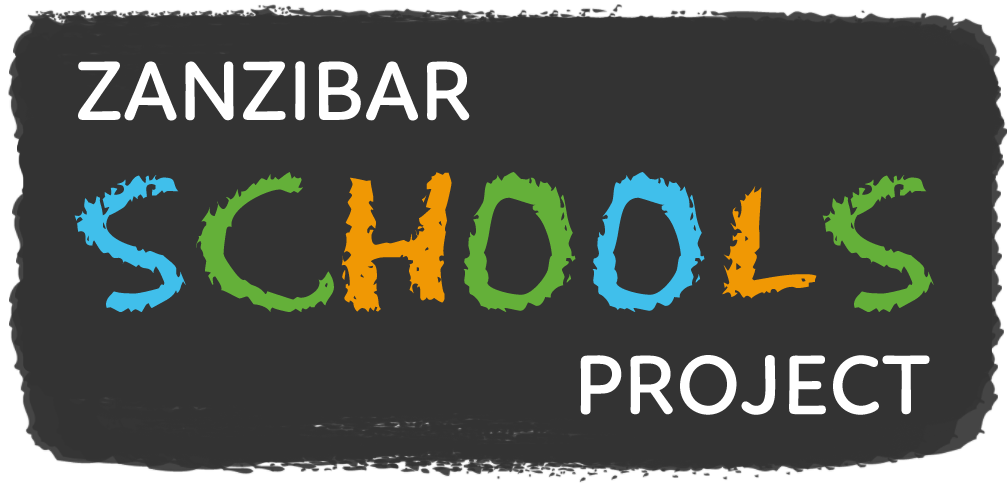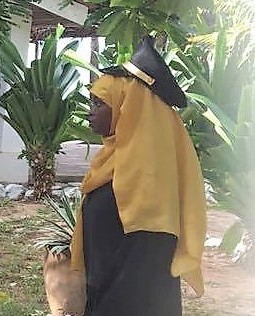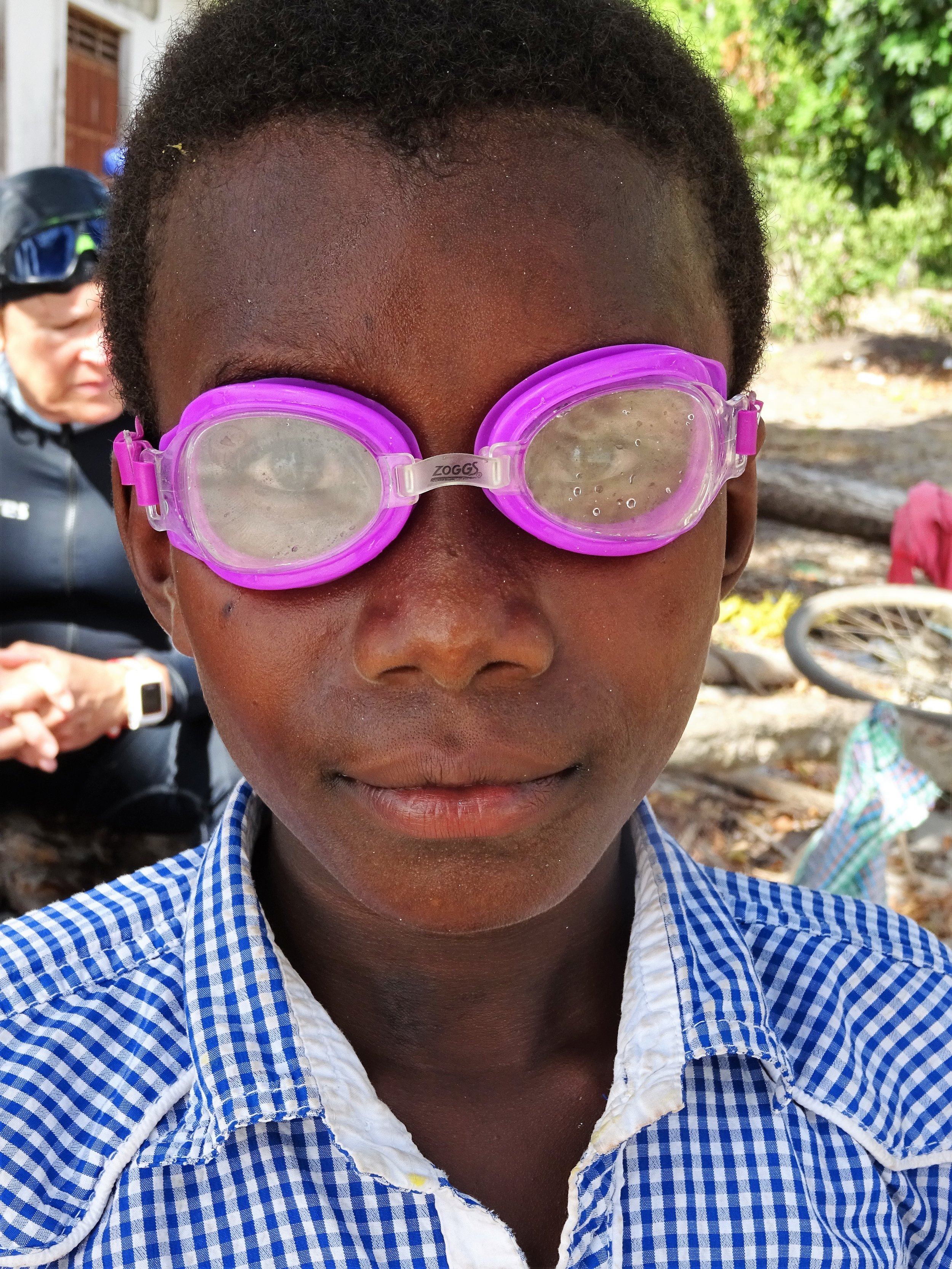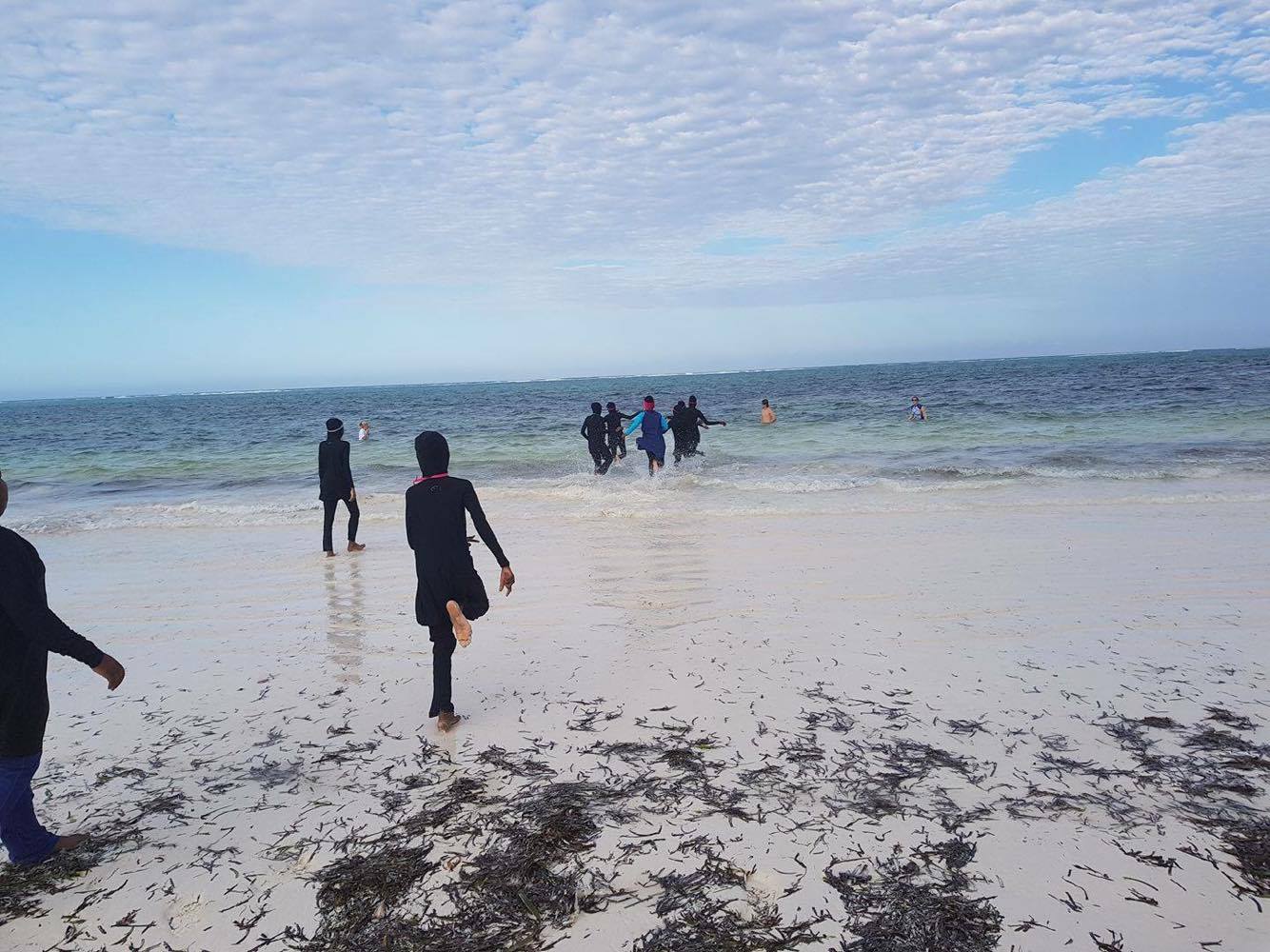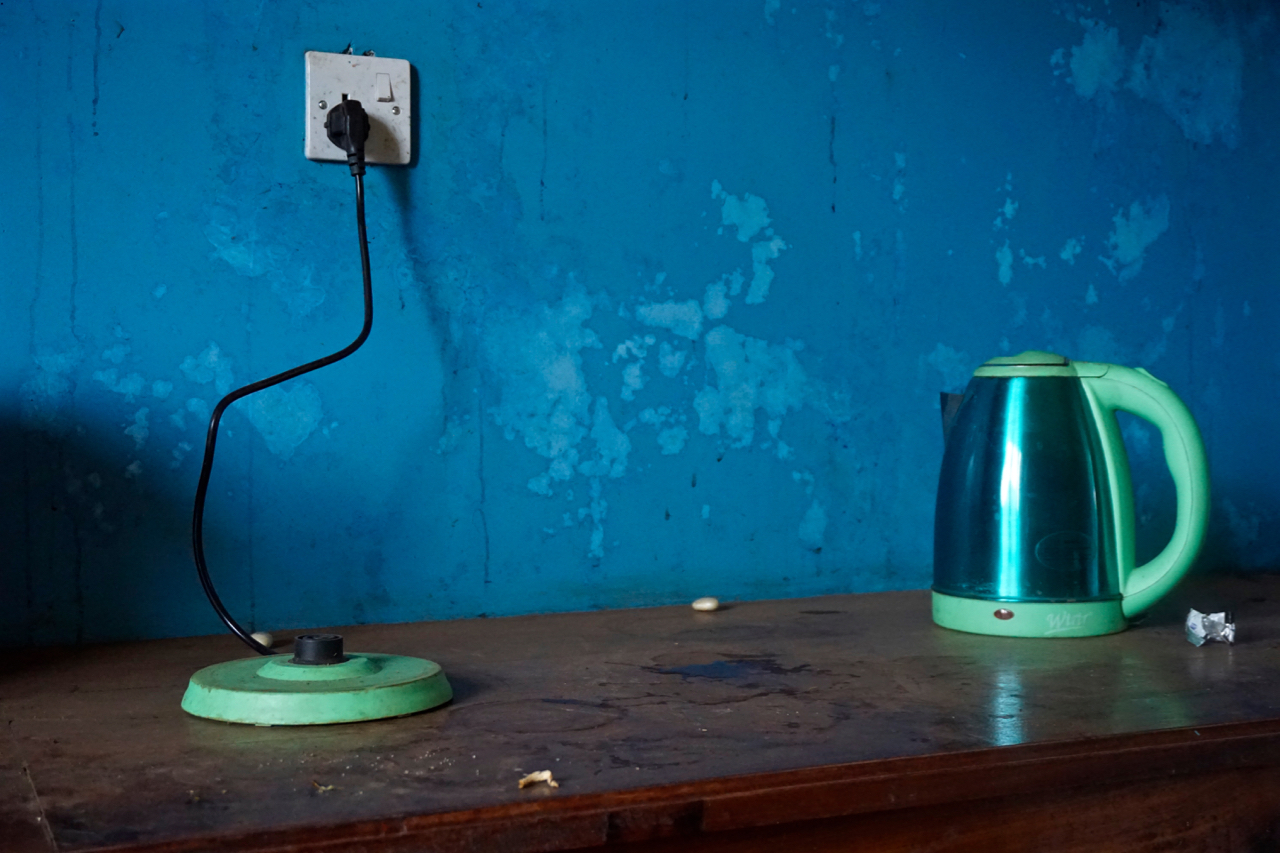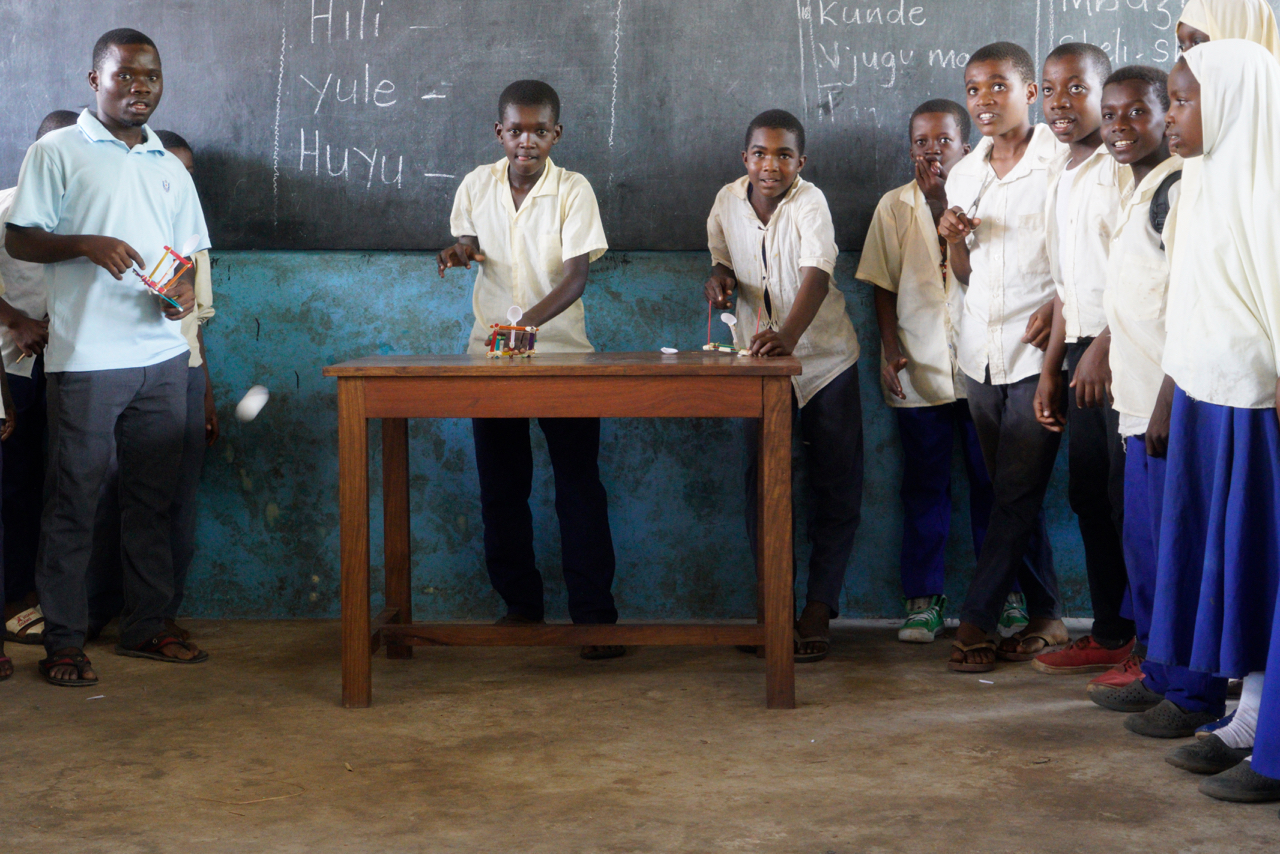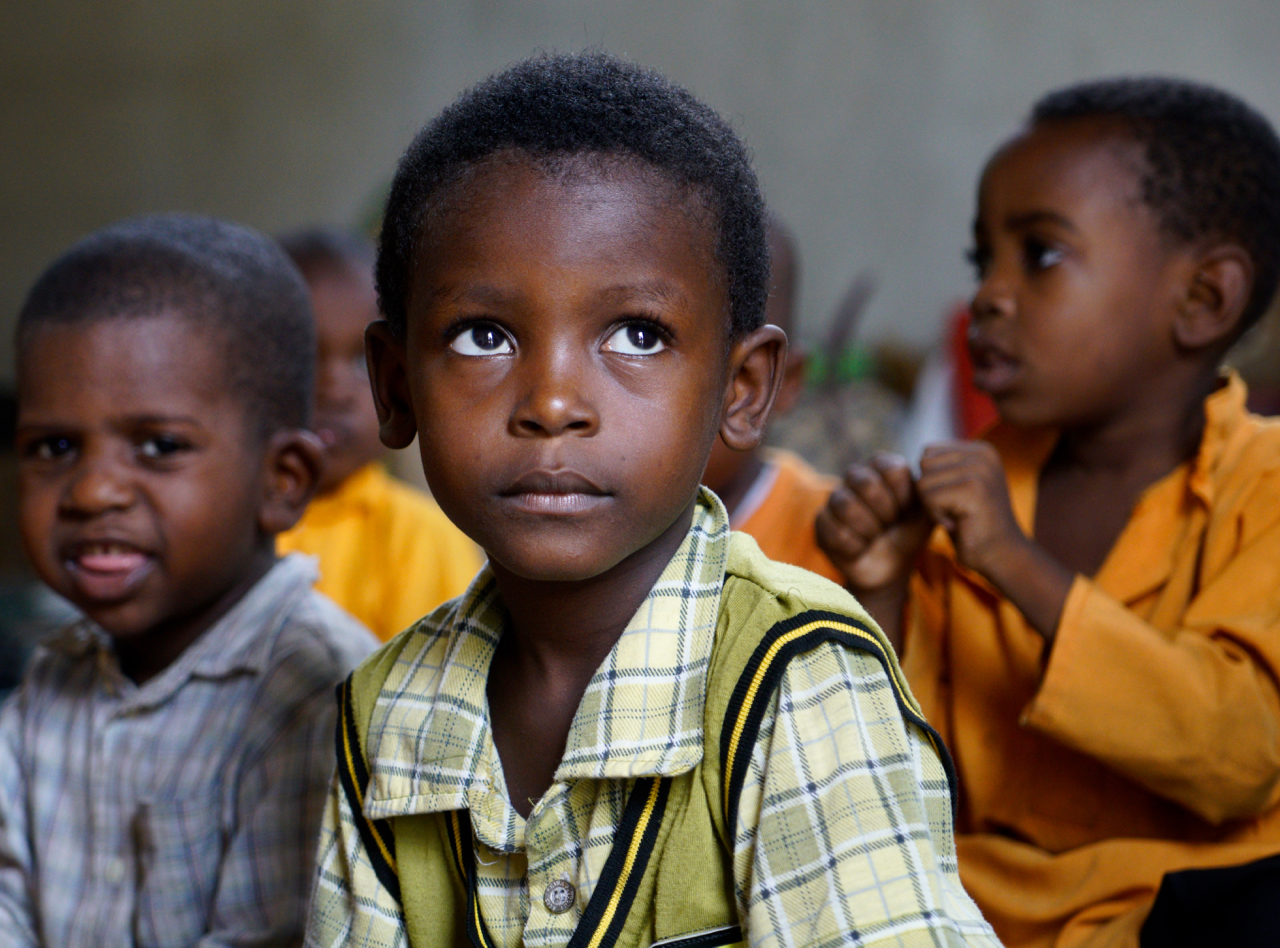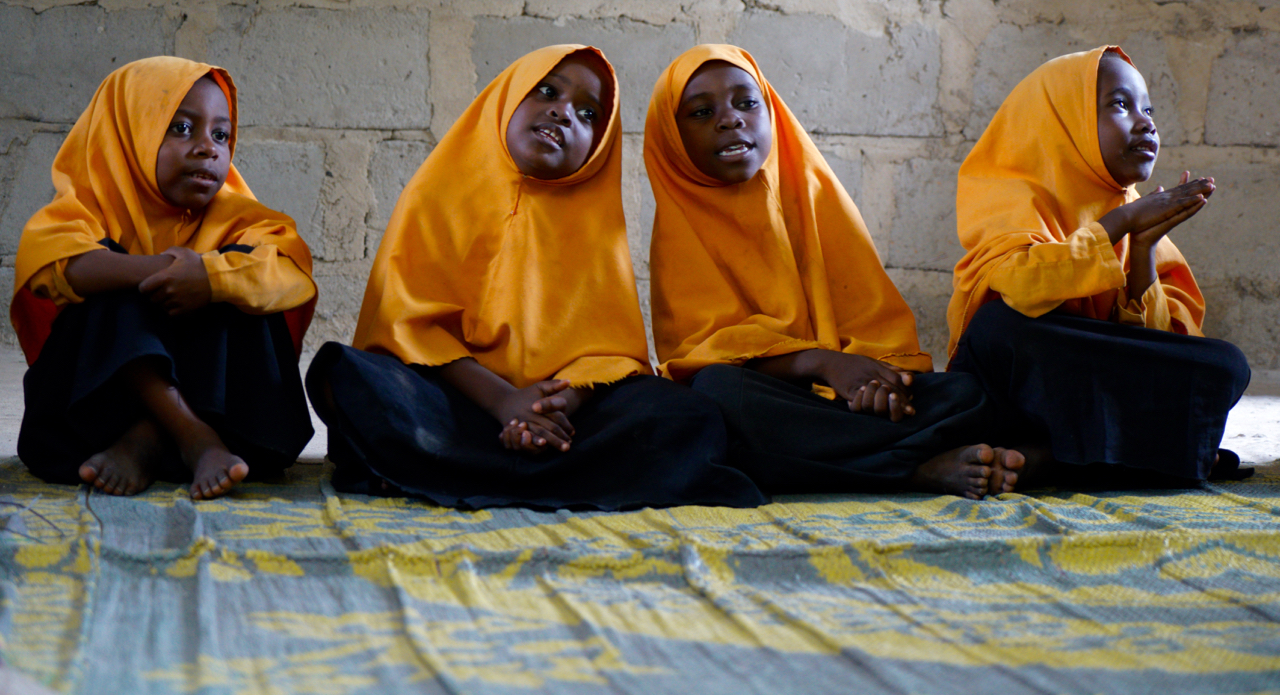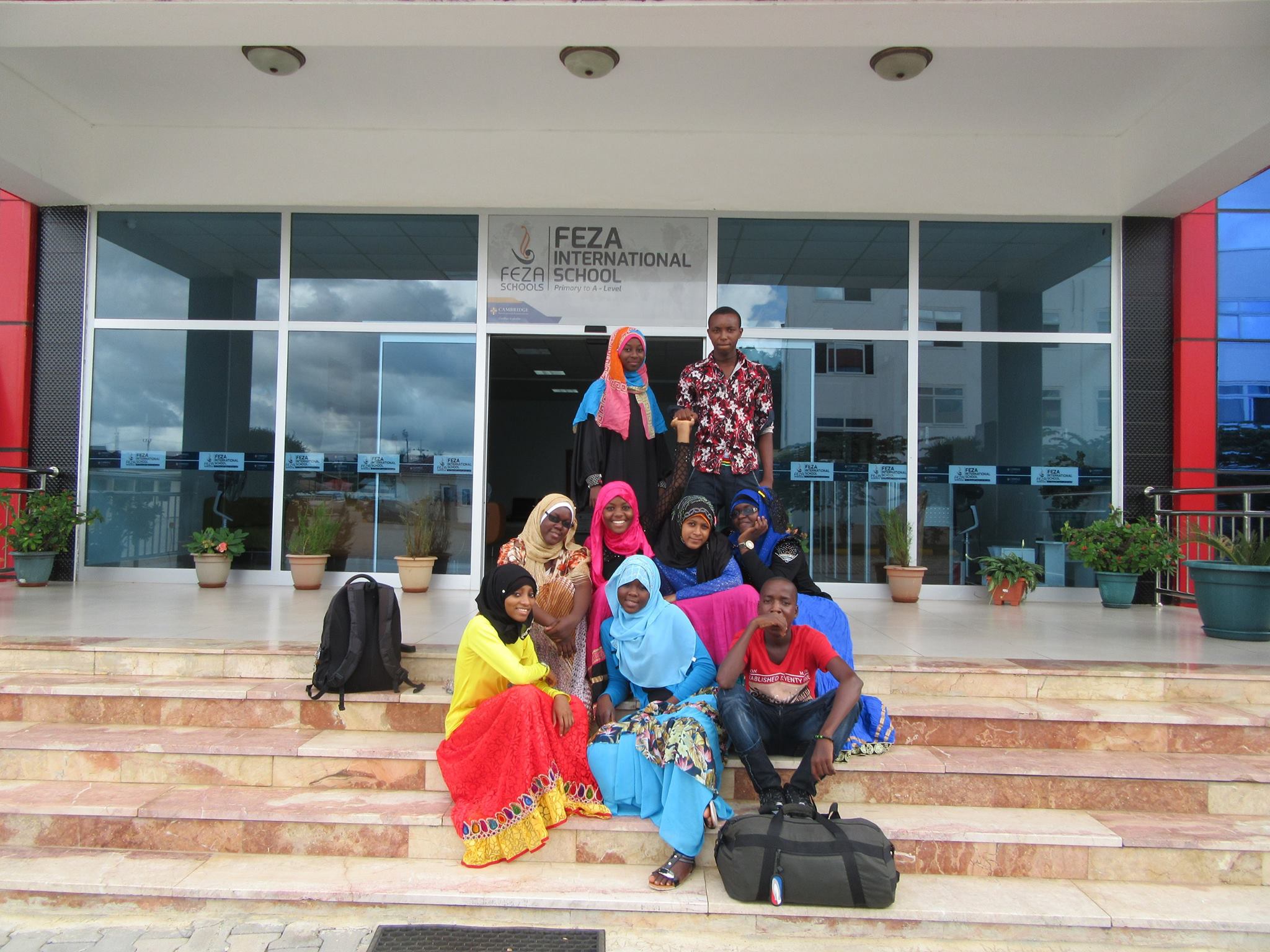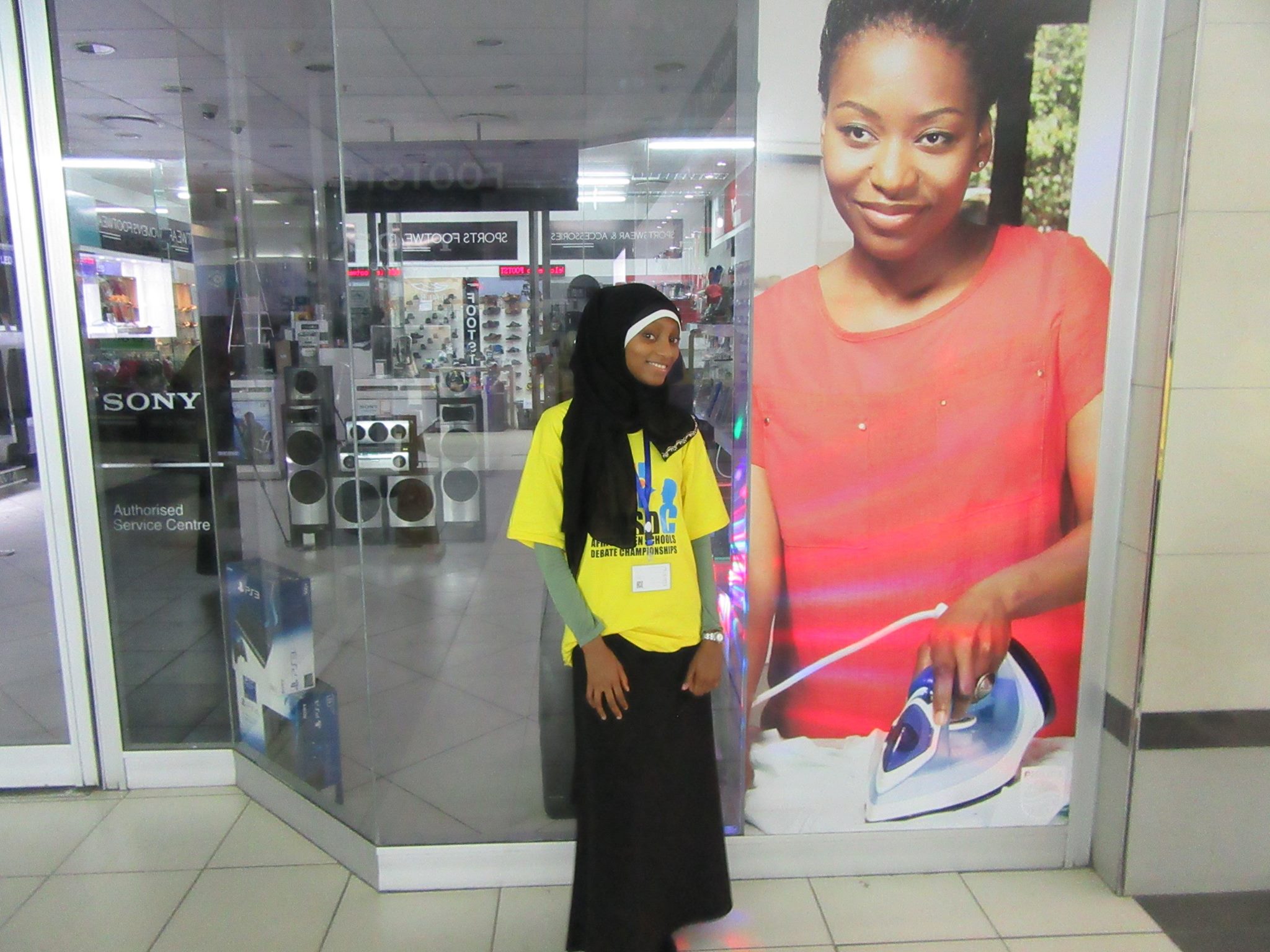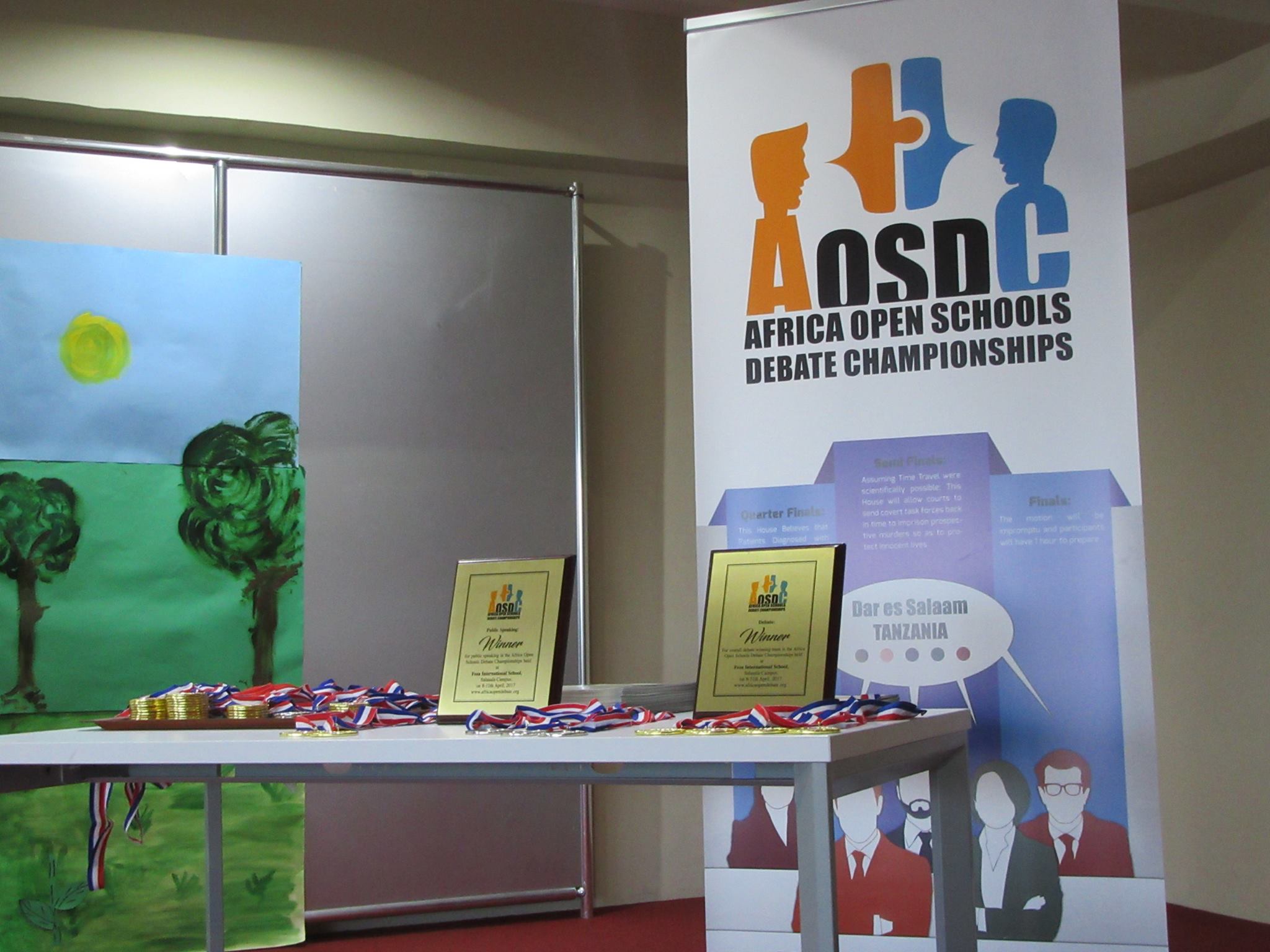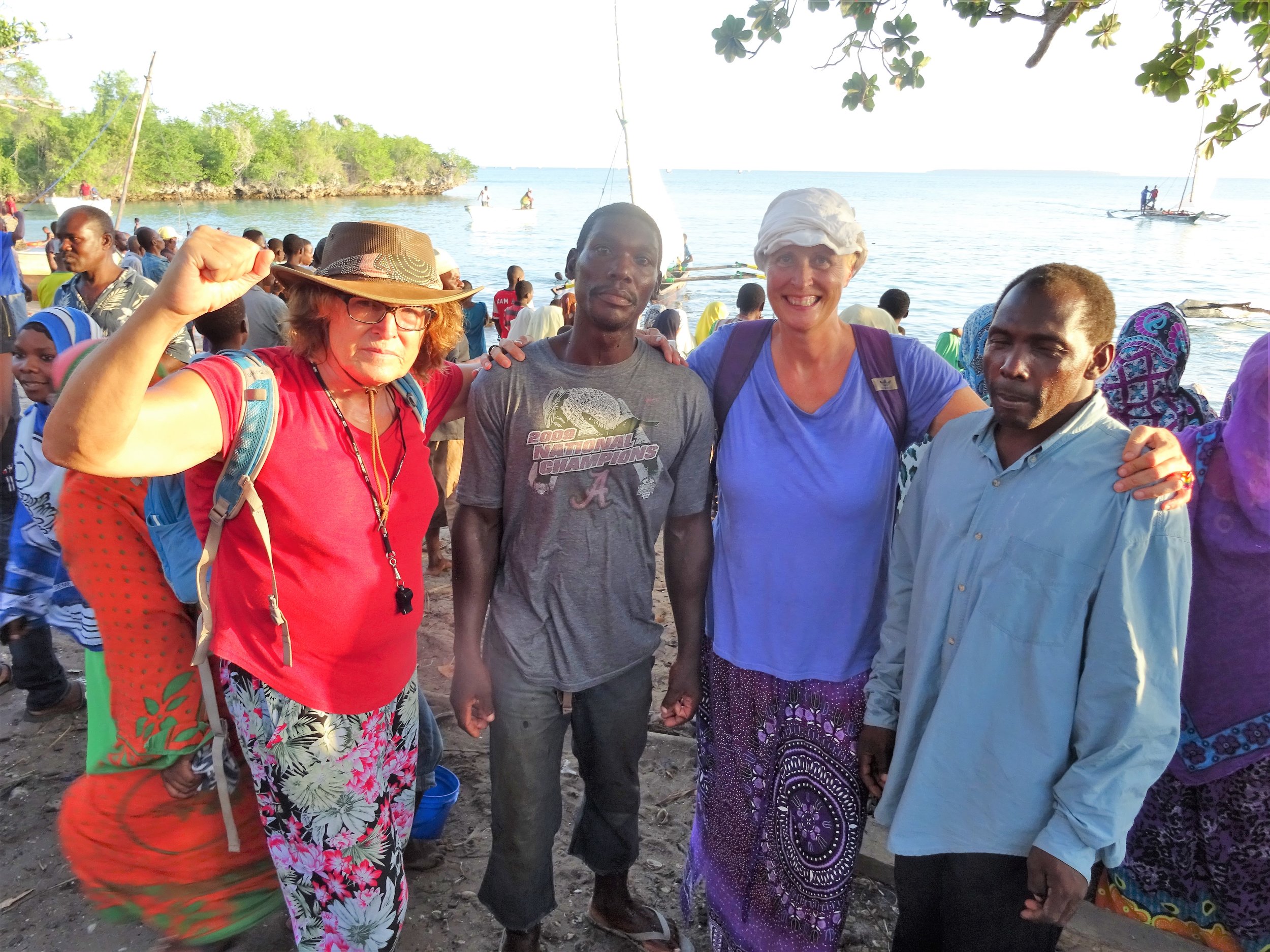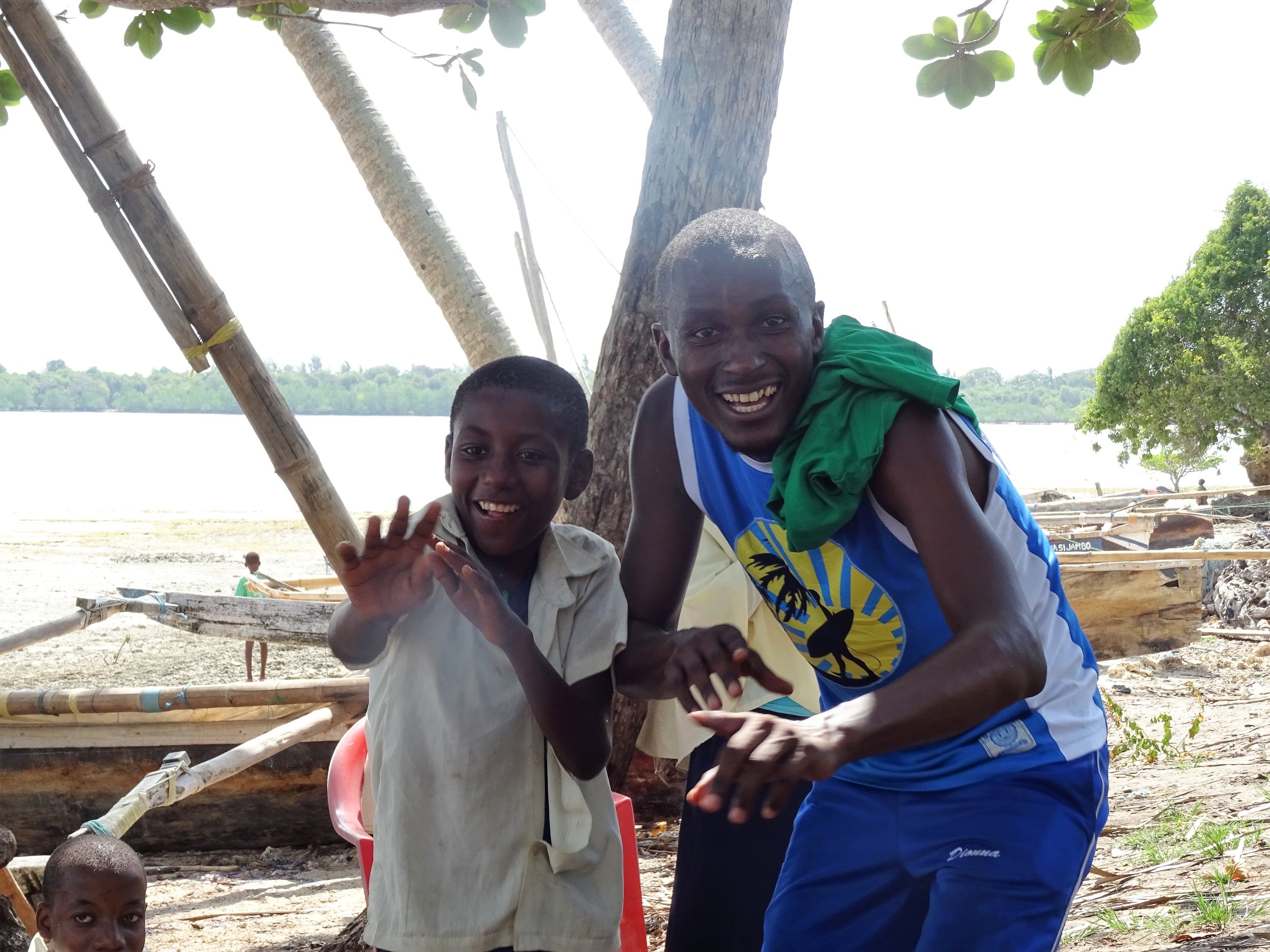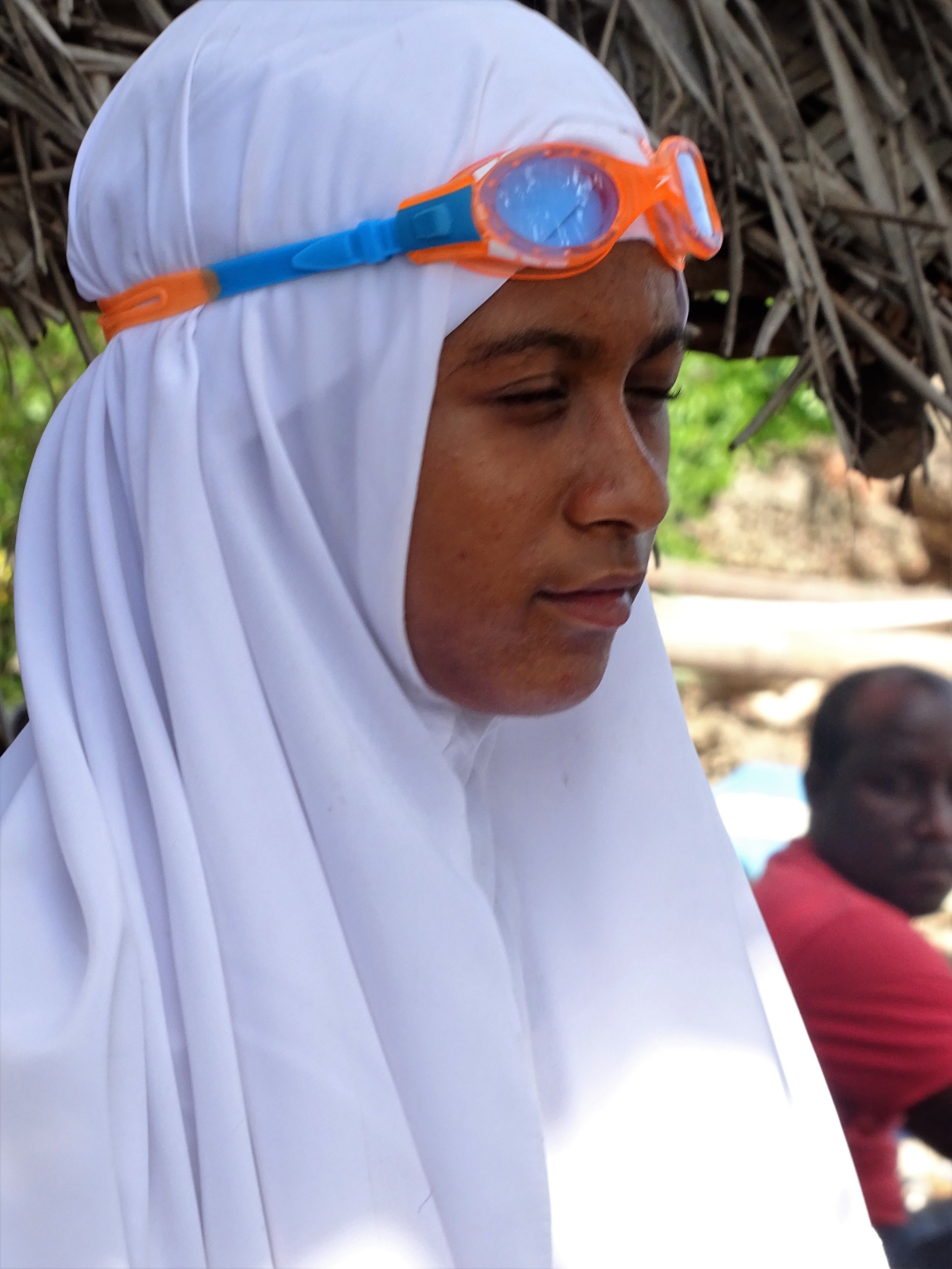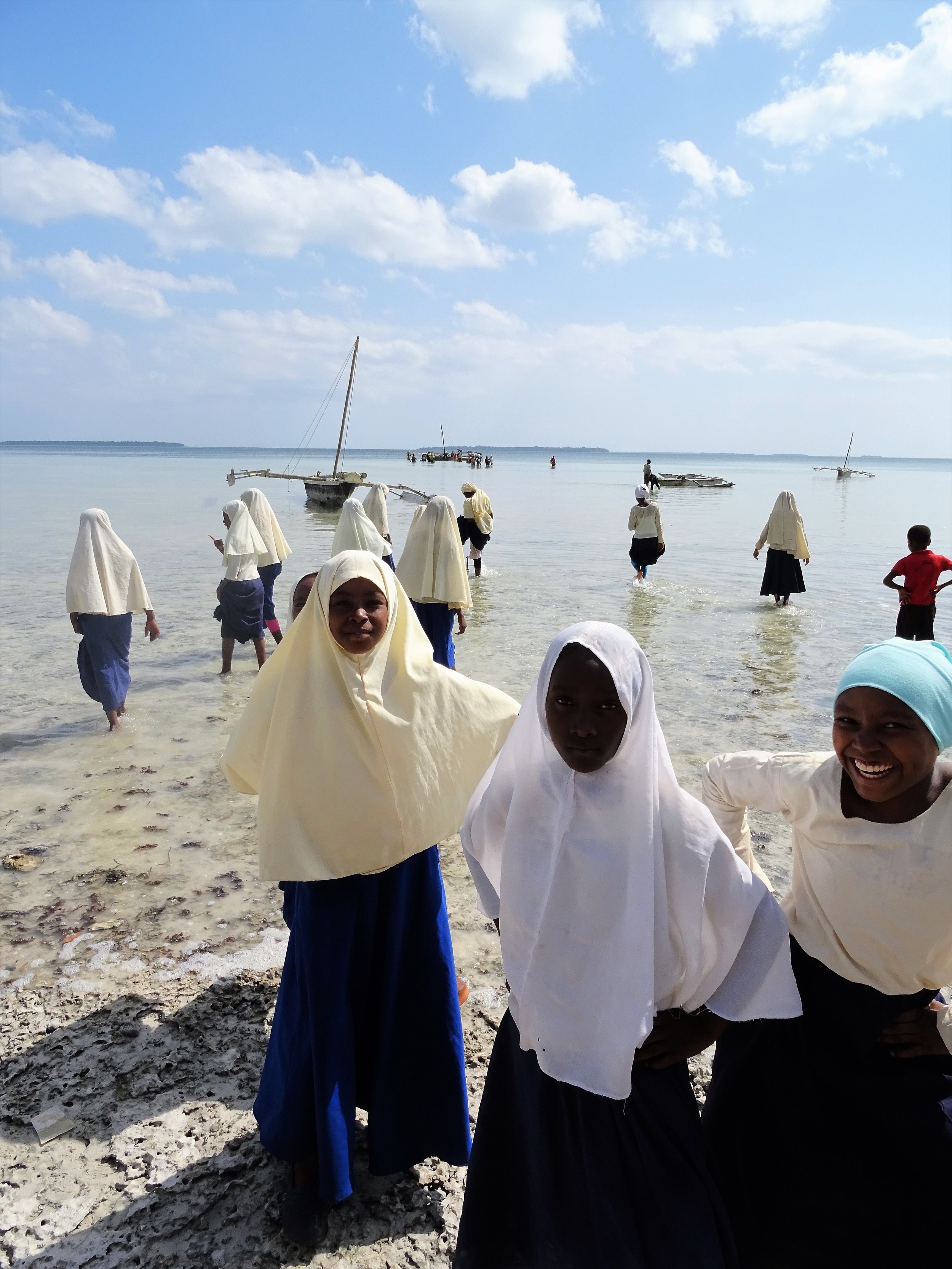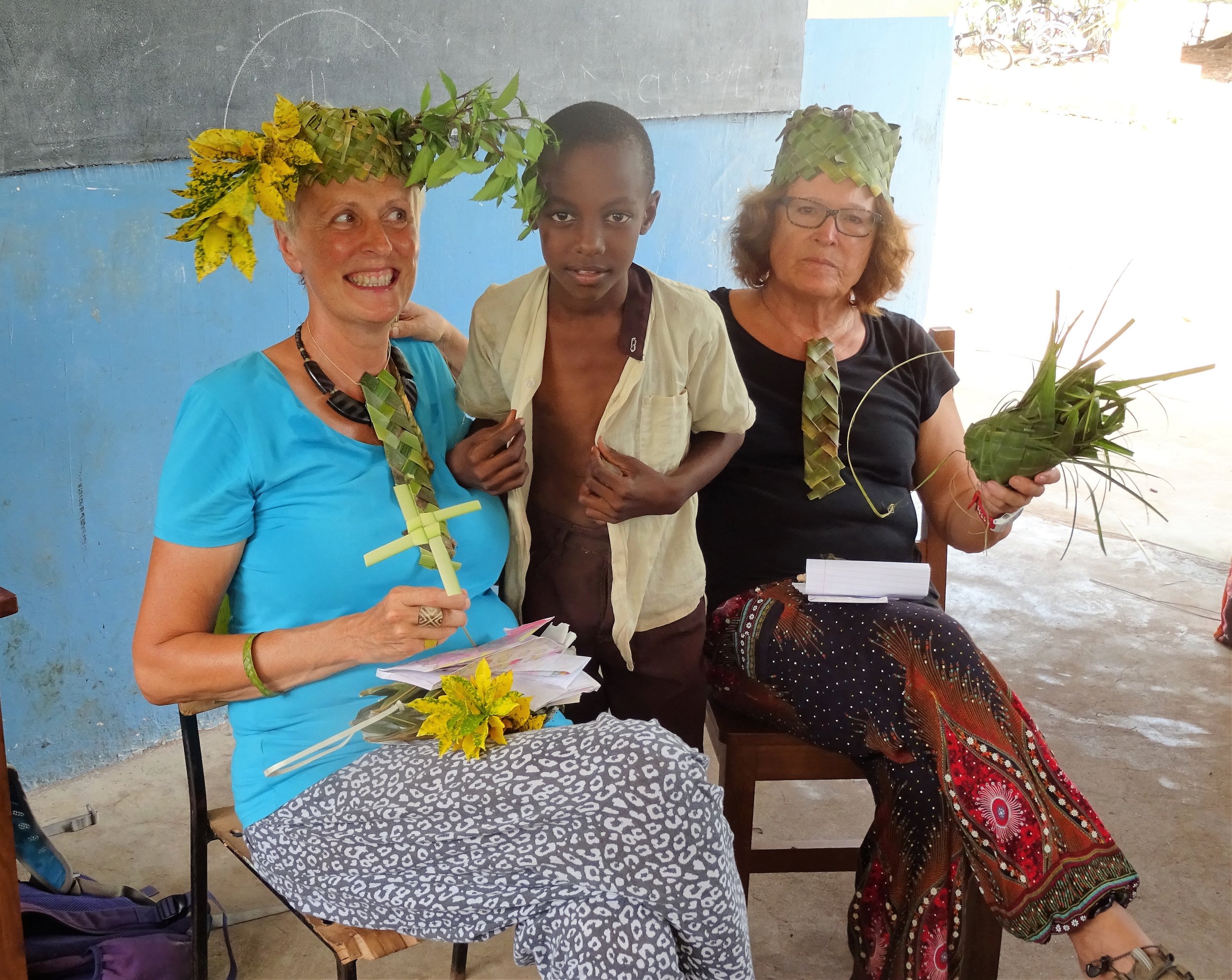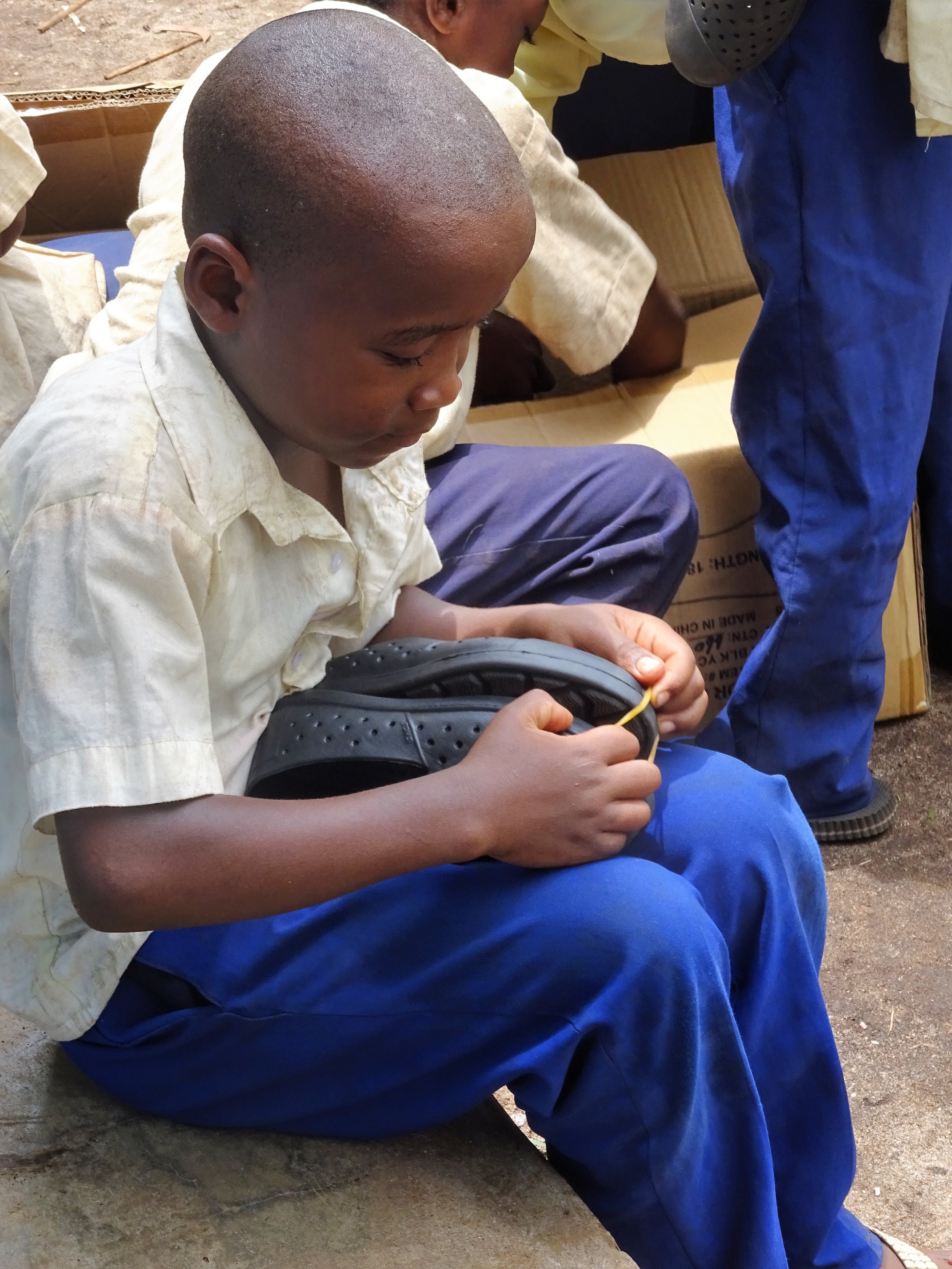This report focuses on the recent English Language Immersion Camp for 31 extremely excited Standard VI students which took place in Panga Chumvi. The students, aged around 12, were from Zanzibar Schools Project in Unguja Ukuu and they had been selected for the course as they are taking their important Primary School leaving examinations in November. The plan was two packed days of English language learning and activities in a beautiful location. Sun, sea, sand and singing were the order of the weekend! We’d like to extend a special thanks to Rebecca of Panga Chumvi in Matemwe (www.airbnb.co.uk/rooms/1199293 in case you want to stay there) for providing the space for the camp and Coco’s Foundation (www.cocosfoundation.co.uk) for the funding. It truly was a hugely worthwhile project in advancing the English of the Standard VI students and the progress of certain pupils over the weekend was notable and very impressive!
Arrival and Beginning – Saturday 12th
On Saturday morning, Gasica and I took the ZL4LF bus to Unguja Ukuu and collected a thrilled and (mostly) very punctual group of students. All the way to Panga Chumvi they were practically bouncing of the walls and singing songs! We arrived at 10am and unpacked. The students were split them into five teams of about 7, each team with a miniature cuddly mascot - lions, tigers, elephants, monkeys and giraffes. Each group had a random mixture of students to encourage them talk to new people as well as shake up the ability levels.
The line-up of teachers included Gasica, Gail, Damian, Carole, Megan, Gail and me. Damian and Carole are our visiting teachers from the UK, we were extremely lucky to be working with them and I personally was constantly amazed by their depth of teaching experience, skills and ability to bring out the best in children. They brought fantastic expertise to the weekend and we’d like to extend a big thank you to them for all their enthusiasm. The primary school required that we take two local teachers and it turned out they were very helpful in certain sessions with translating and I think they quite enjoyed some of the classes, and even learnt a few new things!
Teaching Sessions – Saturday 12th 10:30am – 4:30pm (with an hour for lunch)
Five parallel sessions ran simultaneously and the students rotated on a carousel system. Each teacher had a different focus for their session and there were a broad range of activities. Helped by my good friend Geraldine the Giraffe, I worked with the students on phonics, particularly sounds that Swahili speakers struggle with. They had to feed Geraldine with fish (I’m aware of the biological inaccuracy) that had words with the corresponding sounds on them. This was hilarious and the students were told Geraldine spoke no Swahili (again she would probably speak Swahili as opposed to English but we won’t dwell on that), so they had to address her in English only. I felt that students came away from these sessions with a better understanding of tricky English sounds and some new vocabulary. They definitely left with smiles on their faces after interacting with Geraldine, however again not sure if this was at my expense or not! Either way, it was a lot of fun for all of us.
Damian’s worked with the students to create sock puppets – the results were impressive! The puppets were used to practice conversation skills and Damian did a fantastic job getting the students involved and captivated. I think activities like this are always wonderful because we get to see a creative side to the children that they don’t often get to develop and enjoy during their regular school hours with the local teachers.
Carole’s group worked on role playing and drama. They planned and performed a role play about flying on a plane, a big dream for many of them! They had a great time pretending to be pilots and passengers and practiced conversational and formal English as well as travel vocabulary. The students particularly loved the pilot’s hat and sunglasses! The Giraffe team’s role play was so good that they had a public performance at the end of the weekend!
Gail lives in the immediate area and volunteers at Safari English Club every week. On Saturday she led the students on a treasure hunt all over the Panga Chumvi site, with prizes of fruit for the students who completed the trail. The treasure hunt allowed her to weave in vocabulary focused on directions and distances, which is something students often struggle with. They seemed to love a learning activity on their feet and it allowed them to use some of their boundless energy!
Gasica led a class sitting on the veranda of one of the beautiful bungalows. His class focused on the present continuous tense which is important for the Standard IV exams. Megan roamed around and took most of these pictures of the students in action!
Swimming, Dinner and Singing at the end of the day
At the end of the day, the tide had come in and the time was right for swimming! The students had been looking forward to this all day and they were chattering and very energetic as they lined up to receive their new goggles which they were overjoyed about! We’d like to give a special thanks for goggles to our American friend Julia Pangan and Brighton Swimming School (www.pool2pier.com). They really make a difference when teaching swimming in the sea. The students loved them and many were still wearing goggles all through dinner and songs afterwards! It was my first time seeing Zanzibari girls swimming in burkinis and I was stunned by the enormous difference it makes to their confidence and comfort in the water (and on the beach too!) When I was here last year I saw they had a hard time trying to keep themselves covered in clothes that are completely inadequate for swimming. The girls were able to jump and splash completely freely and really loved their time in the water. We were very lucky that both Damian and Megan are both qualified swimming teachers. They were very knowledgeable on water safety and used this knowledge to ensure everyone was safe and happy. They were also able to teach some swimming skills. Damian oversaw some hilarious races between the boys (including some outrageous cheating!) and a race between Haroun (one of the older students) and me. He’d spent all day challenging me to this race at every opportunity. Damian was also able to give some of the racers advice on their technique and swimming styles. Meanwhile, Megan and Carole were singing songs and jumping over waves and generally being joyful and making the most of the beautiful surroundings. For me it was a really special time and one of my highlights of the weekend.
In the evening we had a lovely Zanzibari meal of curry and rice with the obligatory spinach. The students devoured their food after a long and busy day, but unlike many British children they even happily wolfed down their spinach! Then there was fruit and ice cream afterwards. Then we sang, initially classics from Chloe’s time here such as the much loved and very well remembered “Ricky Bamboo” song and my personal favourite the “O Ma Ley” song. Megan led to begin with and the students loved the British childhood songs many of which brought back strong memories for me. Of these songs, my favourite was the appropriately adapted “Old MacDonald had a Safari Park”… after a while the students took over, the boys showing off their dance moves and competing as usual. The girls made up songs and ran around planning and scheming their newest releases with much giggling. The boys argued over who was the best and came up with Swahili rap lyrics which were hilarious. The spirit and level of energy of the evening was amazing, the only difficult bit was getting the students to calm down. They could’ve carried on all night if they’d been allowed to!
Early Morning Swim – Sunday 13th
We had an early start on Sunday which was incredibly worthwhile. I felt absolutely blessed to start the day swimming with some of the students, just as the sun was just rising. The way it cut through the clouds was absolutely stunning. Starting the day with exercise really gave me a boost of energy, especially in such a beautiful setting. This was also a great chance for the students who didn’t swim the previous day to get in the water and use their new goggles.
Breakfast and Taste Testing – Sunday 13th
Breakfast consisted of delicious pancakes, local tea and coffee. While we were eating, Gail encouraged groups of students to take part in her “Taste testing challenge”. She had brought an array of foods for sampling which had diverse and distinguishable flavours that the students could learn to describe. I loved this activity - it was a really clever way to allow the students to associate vocabulary with memories and I think the students had a great laugh. For example, she had Marmite to teach students to describe savoury tastes, the students found Marmite absolutely hilarious and the old saying proved to be false, they quite overwhelmingly hated it!
Teaching Sessions – Sunday 13th
Once again, we had five sessions running all day. This time around my lesson focused on two elements which were based around preparing the students for the Standard IV exam. First, we talked about the best ways to link sentences and choosing between different connectives, mainly “and” and “but”. Then we looked at telling the time in English and the difference between digital and analogue clocks and how to convert between the two. My lesson was less fun than the previous day, but the students were attentive and a couple of the groups floored me with the progress they made through the lesson and also their progression over the weekend as a whole. Gasica again led an exam-focused English lesson, continuing with the previous day’s topic of the continuous past tense.
Damian’s groups used my Bluetooth speaker to listen to classical music, and take an imaginary journey which they had to describe using all their senses. This was a creative writing activity and really pushed the students to dig deep for descriptive vocabulary. As well as this, it gave them some new words for explaining feelings and sensations. I feel it’s really helpful for the students to be creative with their English language skills and it helps to cement learning. The activity also had a focus on the past tense which is something that students can have difficulty with and is vital for the exam.
Carole led an activity on letter writing, which again is again a common feature in the Standard IV English Exam. The students learnt about how a letter is structured, where the various features should go and most importantly about the style of language used; formal English. We hope that these sorts of activities will allow the students feel ready and increase their confidence when it comes to the day of the exam.
Megan led a conversation activity using the sock puppets that the students had created the previous day. This was a great way to get the students talking to each other and I think was especially helpful for those who can be shy and lack confidence. They were able to speak through a character which gave the conversation a large element of fun and reduced and pressure the students might feel. We agreed there was a significant improvement in the confidence speaking and listening of most children.
Awards and Performance
Before the closing ceremony, we watched the Giraffe group’s exemplary role play of flying a plane to London. They were deemed to be the best group on account of their confidence, progress. Stickers and certificates (somewhat painstakingly) rolled and wrapped in ribbon were presented. Gasica made the reading of the names into a silly game where he jumbled up the pronunciations and the students struggled to work out who was who, giggling and chatting. There was a real spring in the step of the students as they received their certificates, and it was rightfully deserved. I was so chuffed to see them feeling proud of themselves, because they honestly had worked so hard, been very dedicated all weekend and made great progress. But most importantly, they had an amazing time, as did we!
Once again, a huge thanks to everyone who took part, supported and helped to organize the event.
